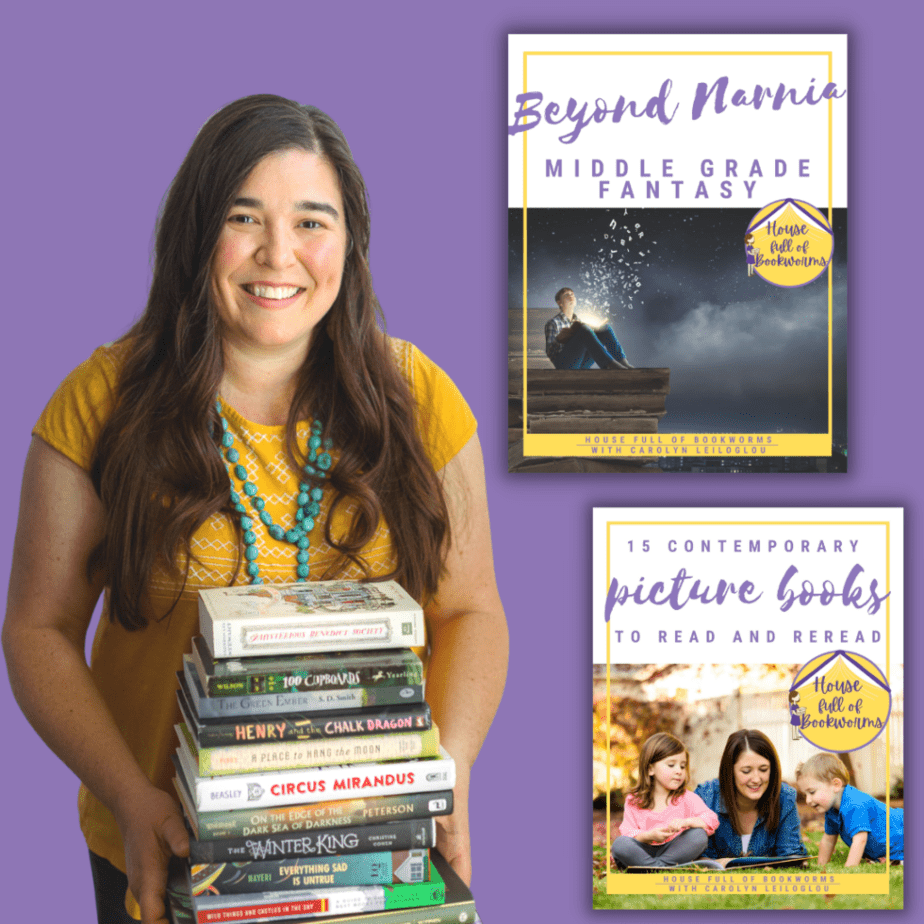When a book quotes Tolkien in the title and Dostoyevsky on one of the first pages, I pay attention. Everything Sad is Untrue: A True Story by Daniel Nayeri has won more awards than I can list here and seven starred reviews, and for good reason. It is a stunningly beautiful and moving book. It’s both spellbinding and often uncomfortable. It’s playful and raw. But as Nayeri writes, “stories get better as they get more true,” and this is a true story, the story of the author’s childhood.
Although I loved this book, I do not think it’s for everyone. Please read my whole review and don’t skip the Parents Should Know section, especially if you have a sensitive reader.

The Story
In the tradition of Scheherazade from the One Thousand and One Nights, Daniel (whose real name, Khosrou no one is Oklahoma can pronounce) weaves his stories into a masterpiece. He tells of his beautiful childhood in Iran, the struggles of refugee life in three countries, family history, legends, and the good and bad things about is new life in Oklahoma. Through much of the story, we’re unsure if he’s writing to his teacher Mrs. Miller, his classmates, or us, the readers. But what’s clear is that Daniel wants us to see him as a person—the way we see ourselves—and not some weird, smelly, poor kid, the way his classmates do.
The story is impossible to capture in this summary because Nayeri weaves together myth and family history with his real life, interweaving them to make a beautiful tapestry. He doesn’t tell the story linearly, and that’s part of its power. But I’ll try to sum up here.
Daniel (Khosrou) begins his life as the child of wealthy, well-educated parents in Iran. But when his mom and sister become Christians, they must flee Iran where converting to Christianity is a capital crime. His father stays in Iran and remarries while his family become refugees in Dubai, Italy, and finally Oklahoma.
What I loved about Everything Sad is Untrue
- Storytelling–As I mentioned earlier, the storytelling in this book is spellbinding. Nayeri weaves together so many threads so skillfully, creating empathy and connection with his reader.
- The gospel–Though Nayeri doesn’t directly claim to be a Christian in the book (he lets the reader decide), and this isn’t a “Christian book,” it still depicts one of the most beautiful, compelling presentations of the gospel through its depiction of his mother and the sacrifices she made to become a follower of Jesus.
- Empathy–As a reader, I can’t help feeling empathy for young Daniel and wishing his classmates could see him as we the readers do. I’m certain this book will change the way any reader sees refugees.
Parents should know
This book has a longer parents should know section than any other book I’ve recommended. I know this may make it too much for some families. Give it a pre-read or pre-listen if you are unsure. I don’t think you’ll regret spending time with this book.
- Blood and violence—Violence is not condoned in this story, but it happens. The story opens with Daniel’s grandfather slaughtering a bull in front of him. Daniel gets stitched in a scary emergency room in Dubai. Daniel’s step-dad beats his mom. There are bullies who break his thumb, a kid who sticks jumper cables to his tongue, and his sister’s severed finger.
- Sex—While retelling one of Scheherazade’s stories, people are copulating in a garden. One kid explains that they were “sexing.” Although there are a few other references to affairs, mostly in the family history and legends, the rest are very innocently told.
- Poop—There are a lot of stories related to poop in this book. It’s hard to explain how I can find this book so beautiful despite all the poop. But it is.
I’d highly recommend Everything Sad is Untrue for teens and adults. The audiobook version is read by the author and is fantastic.
If you’re looking for a book to establish empathy for younger readers, check out my review of Save Me a Seat.





I just bought it on Audible after reading your review. First book I’ve bought with five stars!
I so look forward to reading it.
Thanks Carolyn!
Enjoy!
Newer follower here. Thank you for reading and reviewing books for children. I appreciate your generousity in sharing what you’ve read that might interest families.
Last evening I finished reading “Everything Sad Is Untrue” and honestly, I did not enjoy the writing style at all. Also, his life story was so full of sadness that I would set the book aside because my heart felt so heavy. I also questioned his intent in sharing events, such as watching a friend’s tongue explode from electric shock. Why does the reader need to know that? Yes, I truly felt empathy for Daniel and the challenges he faced as an immigrant, but overall it was an unenjoyable read. I’m glad you could glean good from it.
Hi Cory, thank you for your honesty. It’s definitely not a book for everyone, and I find it interesting how subjective style is. There was a lot of sadness in his story, but overall, it felt redemptive to me, and that was what I really loved about it.